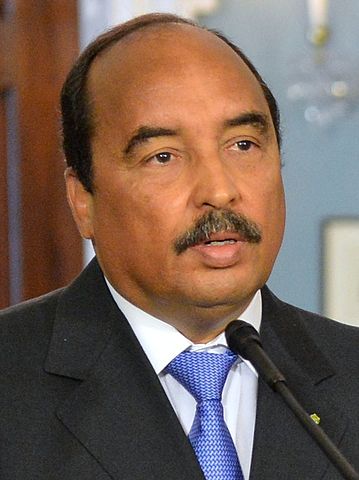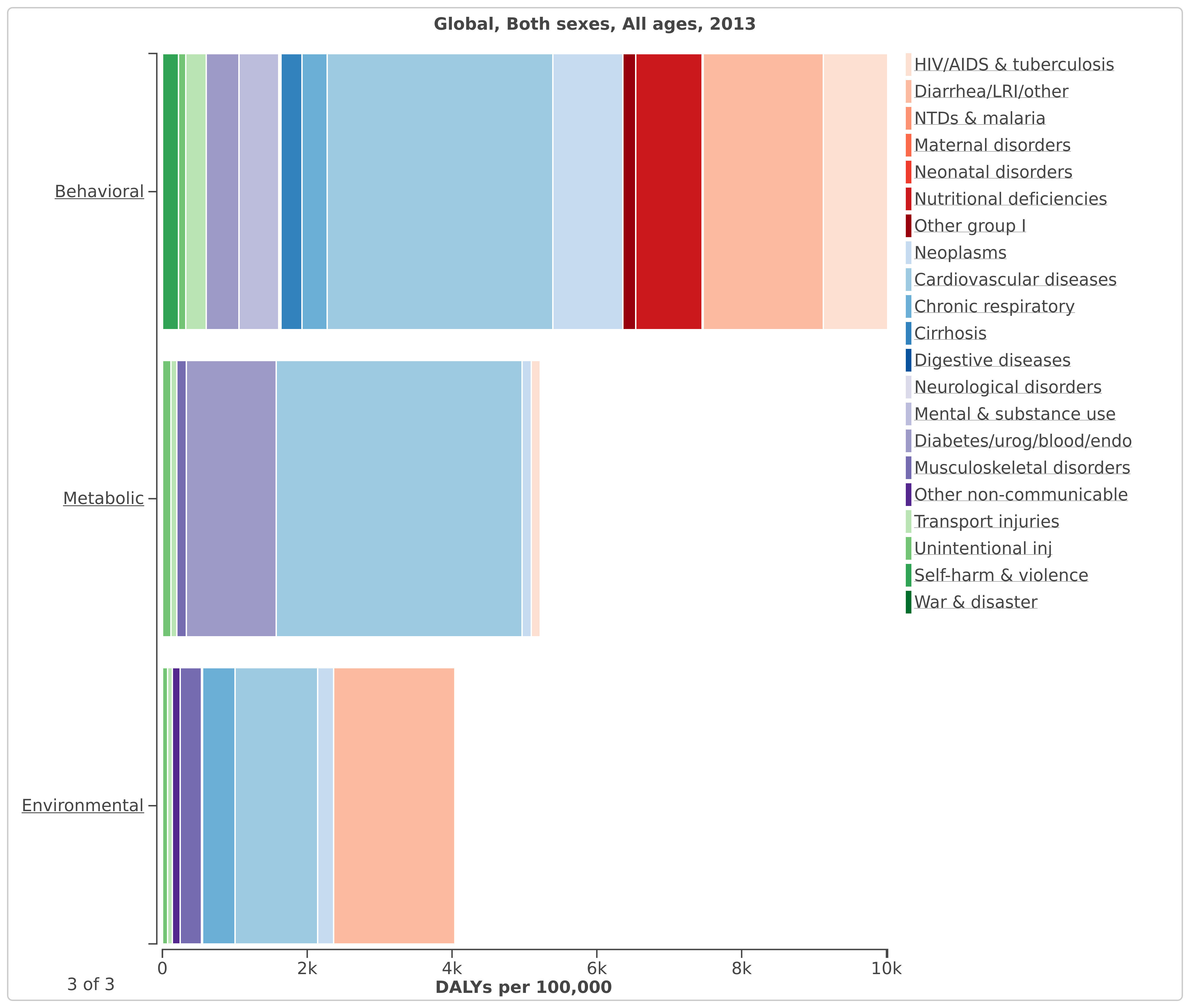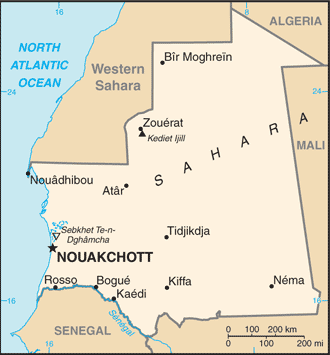|
|
|
|
The word “Mauritania” comes from the Latin word meaning “west.” The Romans called the Berber people “Maures” and Arabs came to call the general area of North Africa the Maghreb, the equivalent in their language. The three main people groups are the white Arab-Berber Maurs, the black Arab Maurs, known as Haratin, and the black Africans. The latter identify as African, while the former two groups both identify as Arabs. Virtually all of them are adherents of Sunni Islam.
Mauritania officially became an independent nation in 1960. In doing so, France was making an effort to block Morocco's expansion and create a barrier between French colonies in West Africa and the nation of Algeria. In 1976, Mauritania and Morocco annexed portions of the Western Sahara. However, within a few short years, Mauritania had to withdraw due to conflicts with Algerian-backed Western Sahara natives.
In 1981, Mauritania became the last country on earth to abolish slavery. It did not become illegal to own slaves until 2007. To date, only one successful prosecution against a slave owner has been mounted, and a 2012 estimate proposes that 10-20% of the population remain in slavery.
In 2008, General Mohamed Ould Abdel Aziz (who had led a previous coup in 2005) was among the leaders of a successful coup against the sitting president, after he had fired several generals, including Aziz. 2007 had been the country's first truly democratic presidential election.
International human rights groups alleged that the government was corrupt, charging slavery, racial discrimination, secret arrests harsh prison sentences and torture
Nevertheless, Aziz retired from military service and ran for president as a civilian, obtaining 52% of the popular vote and becoming the president of Mauritania. In 2011 and 2012 Arab Spring protesters called for the president to resign as they marched through the capital.
|
|
|
|
Mauritania was a one-party state until 1991. The first truly democratic election was in 2007. Currently, it has a muti-party democracy and is governed by an executive branch (president, head of state and prime minister, head of government) and a bicameral legislature. (Parliament, composed of the National Assembly, with 146 seats, and Senate with 56 seats) The legal system is a mix of Islamic and French civil law.

Mohamed Ould Abdel Aziz, President of Mauritania since August 2009

Moulaye Ould Mohamed Laghdaf, Prime Minister of Mauritania since August 2008
Christian ministries operating
There are reportedly Christian and Catholic churches in Nouakchott, Kaedi, Atar, Zouerate, Nouadhibou, and Rosso, which are of foreign origin. There are also a few adherents of Judaism working in Mauritania.
Citizens are not allowed to go to non-Muslim services, but foreigners can.
Mauritania is #47 on Open Doors "World Watch List."
A report from a Christian who visited the country is on the Persecution.org website:
“You can have freedom of speech, if you are a Muslim. You can have freedom of religion, if you are a Muslim. It is in fact OK to be a Christian, but it is offensive to speak of Jesus as anything other than one of the prophets.” In this setting God is doing wonders, despite the guards that sometimes stand at church doors to ensure that Mauritanian citizens don’t enter. God has given dreams to Mauritanians even in remote areas. In the interior of the country, an Imam showed the Jesus Film in a mosque. The Iman later died and the results are unclear, but such seed sowing needs to continue.
|
|
|
|
|
|
Mauritania's climate includes extremes of temperature and scant rainfall. (Annual precipitation in the northern 2/3rds of the country is less than 100mm.) It's one of the largest debtor nations and is very dependent upon foreign aid. It is one of the least industrialized nations in the world. Most citizens engage in subsistence agriculture, do not expect much from the government and do not pay taxes. Child labor laws are not enforced, so most school-age children work. Iron ore is one export, but it may be rich in mineral resources. The country is in one of the world's richest fishing zones. Oil was discovered offshore in 2001 and may one day play a big role in the economy.
Society is strictly organized along ethnic lines. Division of labor is clear and based on ethnicity. Health standards are low, and the ratio of physicians to people is 13 to 100,000, with about 4 hospital beds per 10,000. Infectious disease and a variety of parasitic illnesses are common in certain areas. FGM is common, as is Leblouh, a practice of force-feeding girls in their teens and pre-teens because obesity in women is considered desirable.

Life expectancy in Mauritania is 63.2 years, slightly higher than the average (60.3) for sub-saharan Africa

Significant causes of death include childhood wasting and vitamin deficiencies, pollution and unsafe water

Mauritania is in northwest Africa and borders Algeria, Senegal and Mali, along with the disputed territory of Western Sahara.
|
|
|
|
|
GMO's Stats on Mauritania
In 2016, GMO Registered 6,351 indicated decisions out of 78,011 gospel visits. We also had 347 discipleship web visits and 217 new contacts from Mauritania. We have no Online Missionaries in Mauritania.
"I wanna to give my life to Christ and be His disciple to preach the good news to others" — Adebisi Ishola Olaniyi, Mauritanian contact, 2/9/17
|
|
|
|
|
|
Member Prayer Requests/Praise Report from last week
Janis: Josh is getting around. There was an effect on both of his vision and hearing. Some damage to lungs due to infection & scarring. He's had this condition for 2.5 years.
Deborah: Presented the educational portion for the Women’s Auxiliary of the Mt Zion Baptist Association in Delaware on 4/12 about the challenges of Missionary Work Locally and Internationally.
|
|